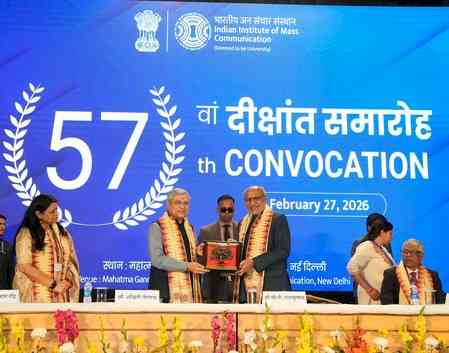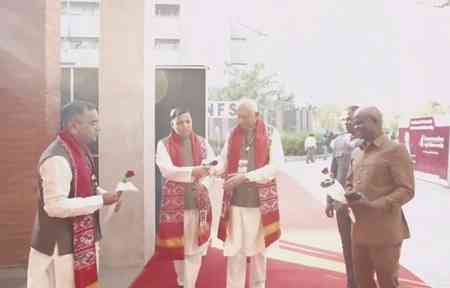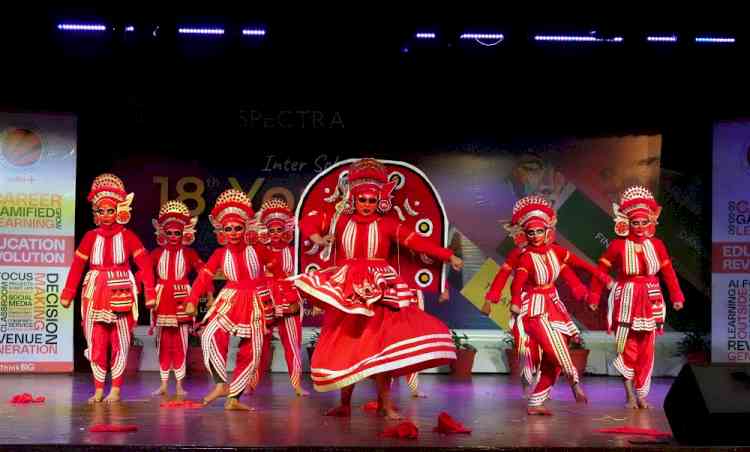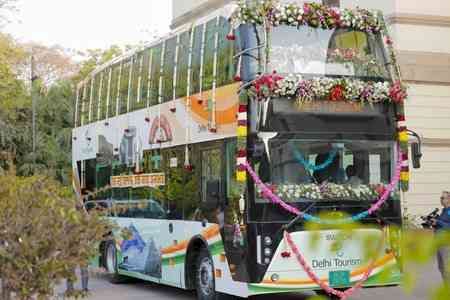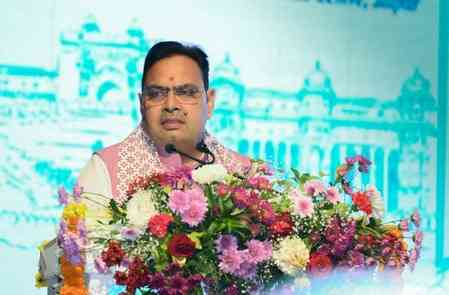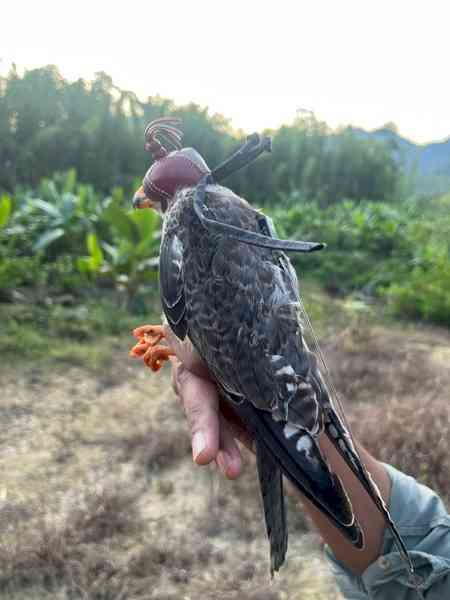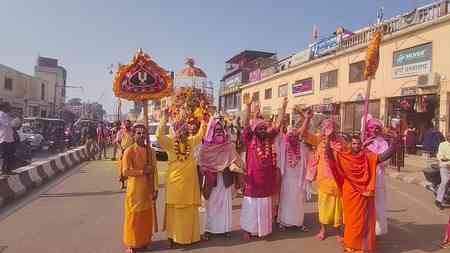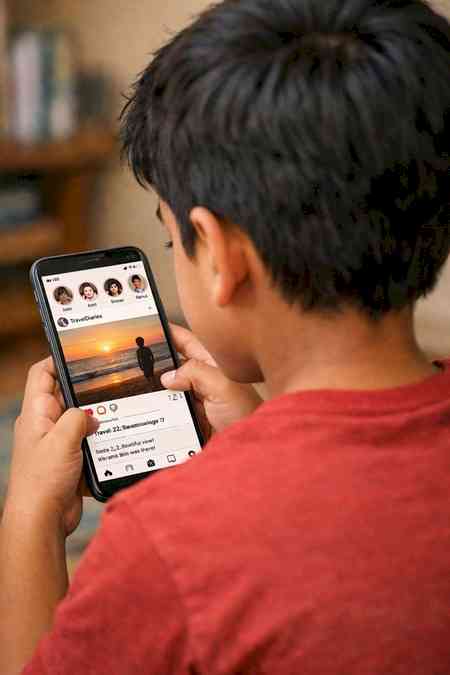Second day of Two-Day National Workshop on Culture, Gender and Modernity
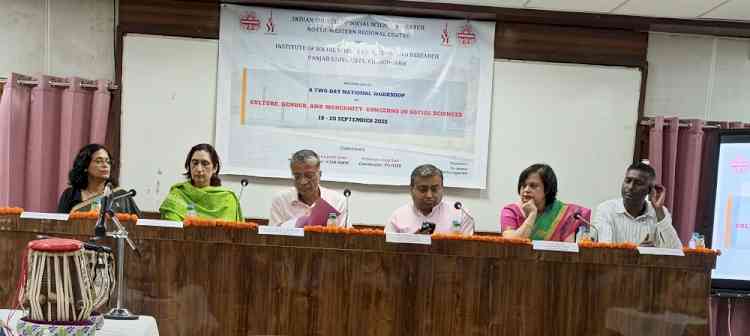
Chandigarh, September 22, 2025: On the second day of the Two-Day National Workshop on Culture, Gender and Modernity, jointly organised by the Indian Council of Social Science Research – North Western Regional Centre (ICSSR–NWRC) and Panjab University Institute of Social Science Education and Research (PU-ISSER), the dignitaries present included Chief Guest Dr. Ashok Khemka, Retd. IAS, Former Additional Chief Secretary, Government of Haryana; Dr. Varinder Garg, OSD to Union Health Minister, President PGIMER and Founder of Sapta Sindhu Forum; Prof. Ritu Lehal, Dean Research, Punjabi University, Patiala; Dr. Sucha Singh, Coordinator, Department of Geography, CDOE, Panjab University; Prof. Upasna Joshi Sethi, Honorary Director, ICSSR–NWRC and Convenor of the Workshop; and Prof. Anju Suri, Coordinator, PU-ISSER and Convenor of the Workshop.
The proceedings began with Dr. Mamta and Akshat, the organisers, introducing PU-ISSER. Prof. Anju Suri extended a formal welcome to the dignitaries and briefly reviewed the highlights of Day 1 of the workshop.
The first keynote address was delivered by Dr. Varinder Garg, who emphasised the importance of understanding history in shaping society. Speaking from an activist perspective, he illustrated the changing status of women over time and stressed the need to bring historical evidence into academic discourse. He highlighted the importance of decolonising the Indian mind from colonial myths and narratives that continue to influence India's economy, society, and public policy.
Prof. Ritu Lehal in her address spoke on modernisation and its challenges to traditional cultural norms, noting how this often creates conflicts within society. She elaborated on gender stereotypes and the "superwoman syndrome" that burden women with unrealistic expectations.
A mesmerising sitar recital by Umesh Kumar, accompanied on tabla by Divyansh Thakur, enriched the cultural essence of the workshop. The duo highlighted the journey of Indian classical ragas and presented soulful renditions of Raag Pahadi, Mand, Darbari, and Vrindavani Sarang.
Dr. Sucha Singh delivered a presentation on Punjab floods from geographical, societal, and modernity perspectives. He provided a historical overview of floods in Punjab and analysed them as an example of how urbanisation and modernity amplify natural risks such as flash floods.
In his presidential address, Dr. Ashok Khemka reflected on modernity as an evolving change in traditional behaviours and cultures. He emphasised the need for dialogue between traditions and modernity, noting the richness of diversity of opinions in society. He urged individuals to realise their potential and make meaningful contributions to society, underlining that physical and social mobility are key dimensions of a modern society.
In her concluding remarks, Prof. Upasna Joshi Sethi congratulated all participants and extended special appreciation to Prof. Anju Suri. She reiterated the importance of social science research in shaping a "Viksit Bharat" and stressed the role of workshops in sensitising policymakers and promoting inclusivity, especially of marginalised groups. She urged the academic community to preserve and pass on the most meaningful and helpful aspects of society to future generations.
The proceedings concluded with a formal vote of thanks delivered by Himangi, student at PU-ISSER, who expressed gratitude to all dignitaries, participants, and organisers for making the workshop a resounding success.
After the lunch break, participants engaged in a hands-on pottery and ceramics session conducted at PU-ISSER, which was chaired by Anil Thakur (Xen), Panjab University. The session provided a refreshing creative bent and allowed the participants of the workshop to experience the art of clay work, emphasising the link between traditional crafts, culture, and modern expressions of creativity. This interactive workshop highlighted how artistic practices serve as an important medium of cultural continuity while also adapting to modern sensibilities.
On the whole, the Two-Day National Workshop opened a new vista of knowledge, prepared the participants for interdisciplinary approaches in learning and research in social sciences, made them know the nuances of intersectionality among Culture, Gender and Modernity, and provided experiential learning in the use of digital tools and creative activity of pottery making, binding the participants closer to their culture.



 City Air News
City Air News 
